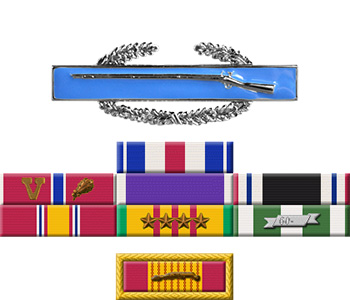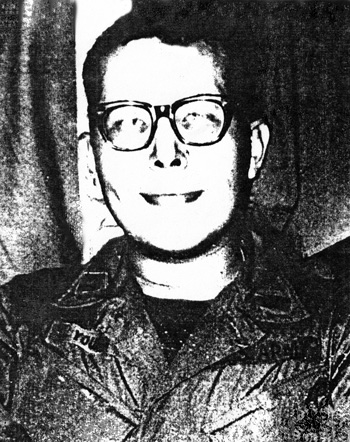Bob Young was born on January 17, 1945, in New Alexandria, Pennsylvania. He was commissioned through the Army ROTC program at Indiana University of Pennsylvania on May 28, 1967, and then completed Infantry School, Ranger School, and Armor School before serving with Company A, 2nd Battalion, 36th Infantry Regiment of the 3rd Armored Division in Europe from January 1968 to August 1969. Lt Young then transferred to the 184th Ordnance Battalion in the Republic of Vietnam, where he served as the Commander of the 630th Ordnance Company from August 1969 to January 1970. He then transferred to the Infantry Branch and served with Headquarters 2nd Battalion, 34th Armored Regiment of the 25th Infantry Division from January 1970 until he was captured and taken as a Prisoner of War in Cambodia on May 2, 1970. Capt Young died in captivity on September 17, 1972, and his remains were returned to the United States on December 7, 1997. Bob Young was buried at Edgewood Cemetery in Saltsburg, Pennsylvania.
His Silver Star Citation reads:
Captain Robert M. Young, Infantry, is awarded the Silver Star for valor and courage while serving as a Prisoner of War in Cambodia from June through September 1972. While a prisoner of war, seriously ill with disease, and dying from lack of food and medical treatment, Captain Young exhibited tremendous courage, fortitude and perseverance in his resistance against the enemy, which ultimately led to his death. In June 1972, already sickly and suffering from malaria, he joined together with other prisoners in the prisoner of war camp in a hunger strike to back the senior ranking officer, who was at this time denied food and water for refusing to make fungi stakes. After several days of denial, when the daily routine was finally restored and all began eating, Captain Young could not now eat. Due to loss of strength because of the hunger strike, his malaria now increased with fatal complications and he could not keep anything in his stomach, If he was able to get something down, it would come up within a few minutes. His illness soon developed into dysentery, chronic stomach trouble, and finally his death. Pleading on the part of other prisoners for food and medical assistance for Captain Young brought no response. His assistance at joining other prisoners in a hunger strike, even though in his weakest condition, proved his moral and inner fiber strength. This sacrifice, which ultimately ended in his death, provided an inspiration to his fellow prisoners to carry on and survive. Captain Young's noble act of silent courage reflected great credit upon himself, his family, and the United States of America.
|



